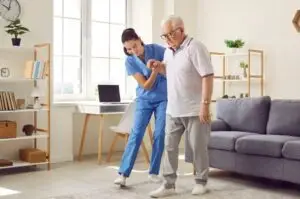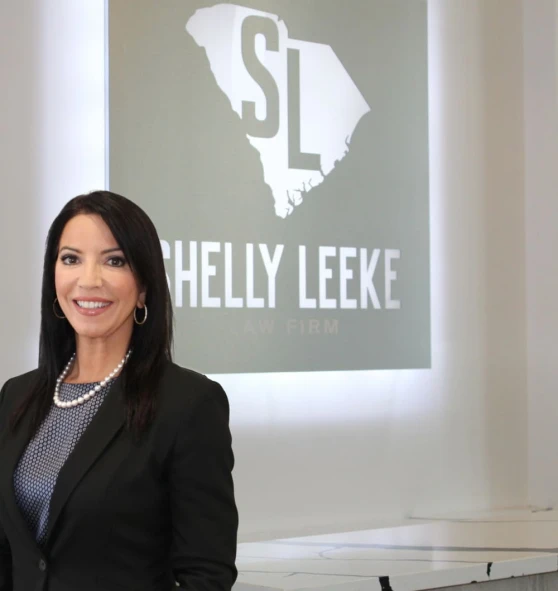
Your loved one’s nursing home environment should be nurturing and allow them to finally relax and take it easy in their elderly years. However, when assisted living facilities and nursing homes take advantage of, neglect, and abuse their patients, victims can endure devastating injuries and damages.
When you suspect your family member is being mistreated or abused, you may have the right to take legal action and demand justice. Contact a reputable Mt. Pleasant personal injury lawyer at Shelly Leeke Law Firm today. You can learn more about what your legal options are and the value of your claim.
Defining Nursing Home Abuse
Nursing home abuse can encompass a wide array of mistreatment and neglect. It is important to remember that in assisted living and nursing home facilities, residents and patients may require around-the-clock care. When patients become a danger to themselves or others, staff must take necessary measures to keep the patient, other residents, and staff safe.
However, there is a difference between taking reasonable precautions and abusing or neglecting patients. Nursing home abuse and neglect can include multiple forms of physical violence, injuries, emotional trauma, and distress. For this reason, it is crucial to get your family member to safety with help from a personal injury lawyer when you expect they are suffering nursing home abuse or neglect.

Common Types of Nursing Home Abuse in Mt. Pleasant
Unfortunately, nursing home abuse often goes undetected until victims suffer devastating injuries, illnesses, or death. Your nursing home abuse lawyer in Mt. Pleasant, SC, will go over the details of your case in depth to determine whether abuse or neglect applies to your lawsuit.
You might assume the answer is obvious, but this may not always be the case. This is partially due to the fact that nursing home abuse can take multiple forms. This is one of the primary reasons it can go undetected for so long.
With that in mind, here are some of the most common types of nursing home abuse patients experience in assisted living in nursing home facilities:
- Financial abuse
- Emotional abuse
- Physical abuse
- Neglect
- Sexual abuse
Financial Abuse
Financial abuse is one of the most underreported types of financial abuse patients can experience. When their healthcare providers make changes to their durable power of attorney, take money out of their bank accounts without permission, use credit or debit cards without their consent, or steal patients’ cash, this is considered financial abuse.
It often is that until red flags are raised by the resident’s estate that financial abuse becomes known. Fortunately, financial abuse usually leaves a paper trail, which may make it easier to identify the abuser and other parties that facilitated the abuse.
Emotional Abuse
Emotional abuse, though it may not leave physical injuries, can be emotionally devastating for patients. Emotional abuse can include intimidation, threats of violence, name-calling, humiliation, shame, and even mocking residents who deal with physical disabilities. This can lead to patients developing anxiety, depression, and increased feelings of social isolation and make it difficult or impossible for them to live their lives normally.
Physical Abuse
Physical abuse is arguably the most well-thought-of type of nursing home abuse. This is because it is most easily distinguished and noticed by the victim’s family and other nursing home staff. Physical abuse can include hitting, kicking, punching, spitting, smacking, and any other actions that might cause severe physical bodily injury or death.
Neglect
Neglect in nursing homes and assisted living facilities is also considered a type of abuse. This is because healthcare facilities have an obligation to ensure patients are being adequately cared for at all times. If you notice the development of bedsores, dehydration, malnutrition, poor hygiene, or other signs of neglect, it is crucial to bring your concerns to the attention of your nursing home abuse attorney in Mt. Pleasant, SC, for further investigation.
Sexual Abuse
One of the most devastating types of nursing home abuse patients can suffer is sexual abuse. Not only are patients at risk of being abused by their healthcare providers, but many nursing home residents find themselves victims of sexual assault, rape, exploitation, and other forms of sexual abuse by other nursing home residents.
You might have grounds for a claim against the abuser in this case. But you might also have the right to take action against the nursing home facility for failing to prevent the abuse and protect your loved one.

Potential Legal Options After Discovering Nursing Home Abuse in Mt. Pleasant
Your nursing home abuse attorney will carefully evaluate the circumstances of your case to determine which legal options are most suitable. Fortunately, there are multiple ways you can help your family member demand justice. These include:
- Filing a medical malpractice insurance claim against the nursing home facility
- Filing a civil lawsuit against the nursing home facility, your loved one’s abuser, and others who contributed to the abuse or neglect your family member suffered
- Reporting your concerns to the South Carolina Department of Social Services
- Filing a complaint with the Mt. Pleasant Police Department
- Filing a complaint with the South Carolina Department on Aging
Not only do you have a chance to help your family member recover the compensation they need to switch facilities and move forward with their lives, but you could put a stop to the abuse or neglect other patients are currently experiencing as well.

Contact a Nursing Home Abuse Lawyer in Mt. Pleasant for Help Today
When your family member has been neglected, abused, or otherwise taken advantage of by those you trusted most to keep them safe, you may be able to demand justice. With help from an experienced Mt. Pleasant nursing home abuse attorney at Shelly Leeke Law Firm, you can get your loved one to safety and ensure they are well taken care of for the rest of their life.
Contact our team for a free consultation today and learn more about how to recover maximum compensation and who can be held accountable for what your family member was put through.







